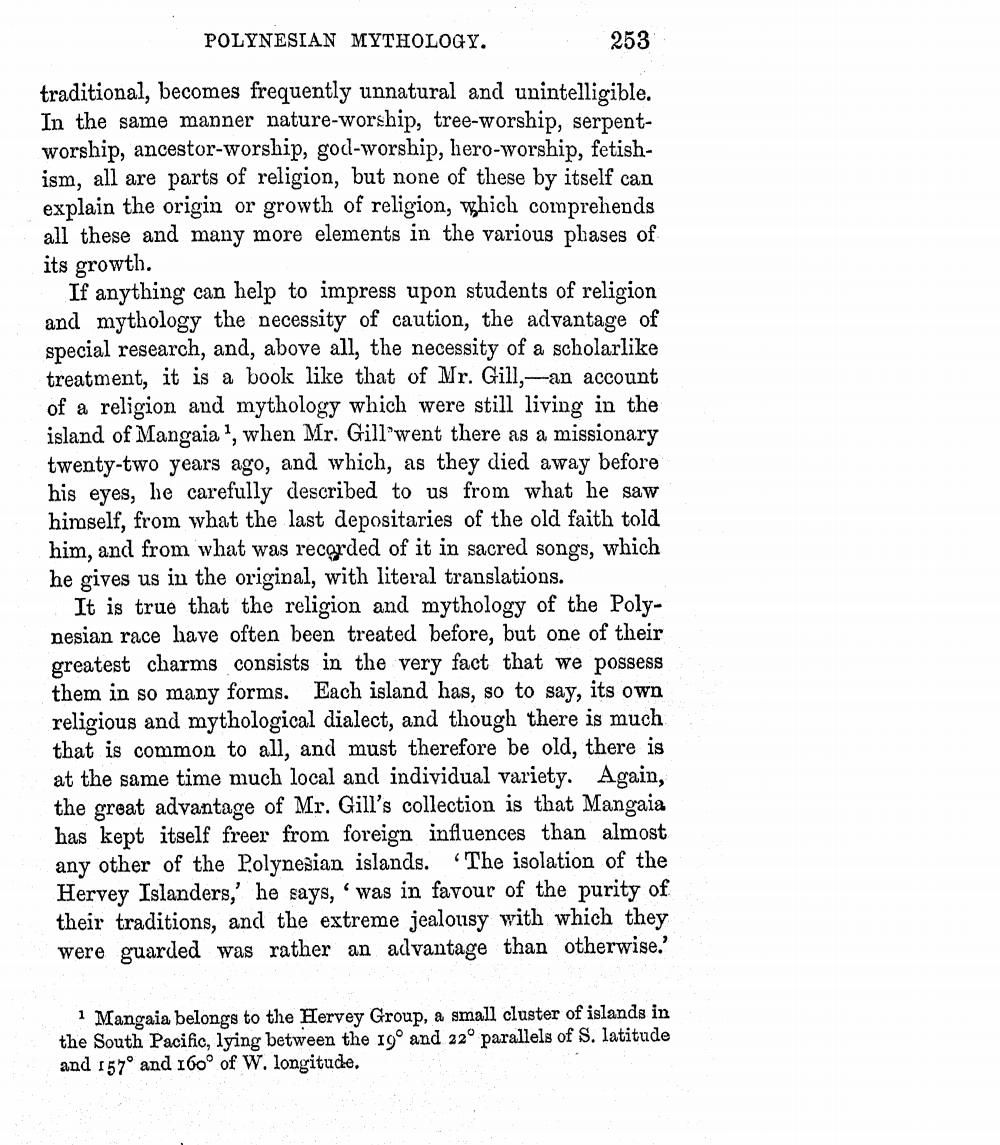________________
POLYNESIAN MYTHOLOGY.
253
traditional, becomes frequently unnatural and unintelligible. In the same manner nature-worship, tree-worship, serpentworship, ancestor-worship, god-worship, hero-worship, fetishism, all are parts of religion, but none of these by itself can explain the origin or growth of religion, which comprehends all these and many more elements in the various phases of its growth.
If anything can help to impress upon students of religion and mythology the necessity of caution, the advantage of special research, and, above all, the necessity of a scholarlike treatment, it is a book like that of Mr. Gill,- an account of a religion and mythology which were still living in the island of Mangaia !, when Mr. Gill'went there as a missionary twenty-two years ago, and which, as they died away before his eyes, he carefully described to us from what he saw himself, from what the last depositaries of the old faith told him, and from what was recorded of it in sacred songs, which he gives us in the original, with literal translations.
It is true that the religion and mythology of the Polynesian race have often been treated before, but one of their greatest charms consists in the very fact that we possess them in so many forms. Each island has, so to say, its own religious and mythological dialect, and though there is much that is common to all, and must therefore be old, there is at the same time much local and individual variety. Again, the great advantage of Mr. Gill's collection is that Mangaia has kept itself freer from foreign influences than almost any other of the Polynesian islands. The isolation of the Hervey Islanders,' he says, 'was in favour of the purity of their traditions, and the extreme jealousy with which they were guarded was rather an advantage than otherwise.'
Mangaia belongs to the Hervey Group, a small cluster of islands in the South Pacific, lying between the 19° and 22° parallels of S. latitude and 157° and 160° of W. longitude.




